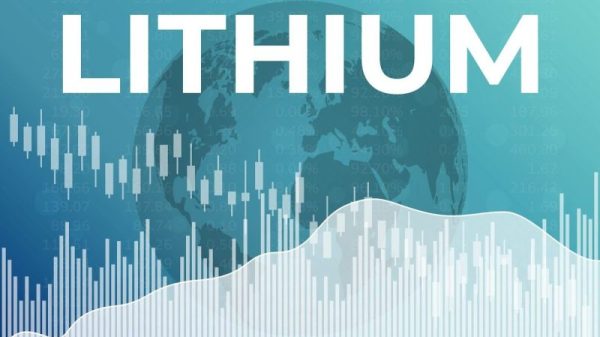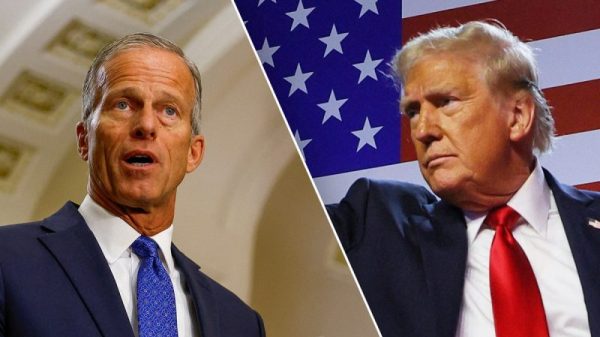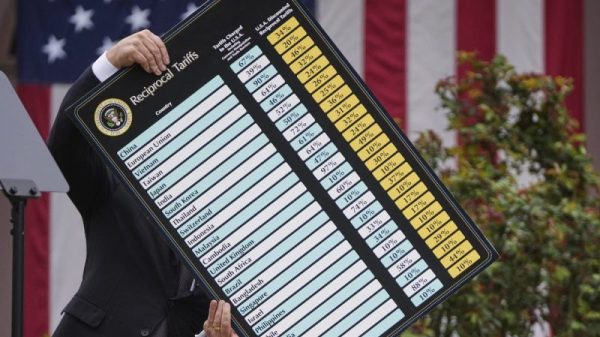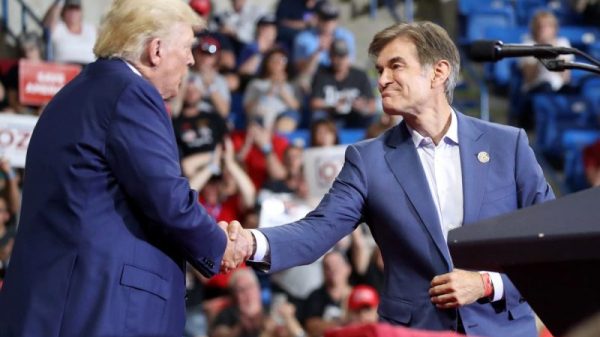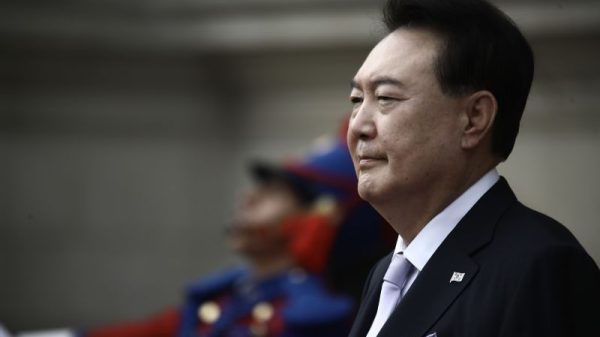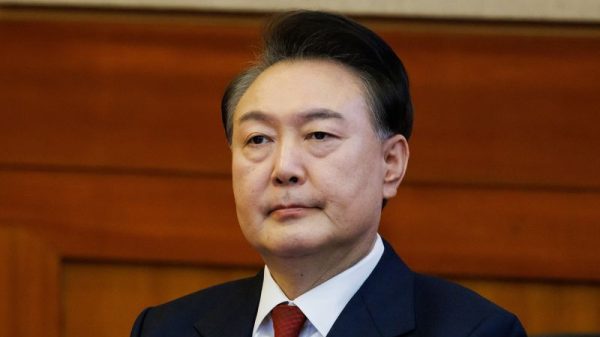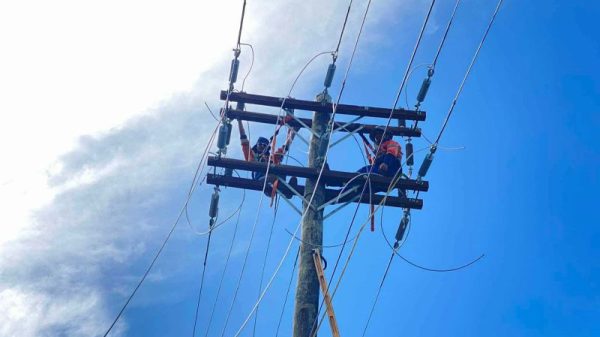As oil-rich Gulf states seek to diversify their military partnerships, they are finding themselves ensnared in the intensifying rivalry for global dominance between the United States and China.
One of America’s closest allies in the region, the United Arab Emirates plans to hold its first-ever military drill with China this month, the Chinese defense ministry announced late last month.
The nation is a military partner of the US, having served alongside American forces six times, and has been the recipient of some of the most advanced weaponry Washington has sold in the Middle East.
Dubbed the China-UAE Falcon Shield-2023 joint air force exercise, the drill will take place in August in China’s northwestern Xinjiang region, the ministry said, without giving a specific date.
The drill is the latest in a flurry of Chinese activity in the Middle East, traditionally seen as the US’ backyard. It takes place as Gulf states seek to distance themselves from what they see as an increasingly polarizing global order following Russia’s invasion of Ukraine, and waning US interest in their region as it redoubles efforts to contain China’s rise.
The UAE holds joint and multilateral training exercises “with various international partners across the world, including with countries in the Middle East, Europe, Africa and Asia,” the official added.
But there is a “triangular dynamic” to the Gulf-China-US relationship, he said, adding that it is unlikely that Gulf states are oblivious to the “second-order ramifications” of their growing ties with China, referring to the possibility of upsetting Washington.
“We have no intention to fill a so-called ‘vacuum’. And we will not build exclusive circles,” the ministry said, adding that China “will continue to develop friendly relations in all fields with Middle Eastern countries” as well as “play a positive and constructive role in promoting peace and stability” in the region.
Obama’s pivot to Asia
Experts say that China first saw an opportunity in the Middle East during former US President Barack Obama’s “pivot to Asia” strategy that sought to refocus America’s military and diplomatic efforts to the East. Regional states saw that as happening at the expense of the US’ commitment to their own security.
For Saudi Arabia and the UAE, those fears materialized when they each faced the biggest attacks in years on their soil in 2019 and 2022 respectively. Both attacks, blamed on either Iran or its Houthi proxy in Yemen, received a lackluster response from Washington. The UAE called it its own “9/11.”
The perceived security vacuum left by the US “created an opening that was not there before,” said Mohammed Baharoon, director general of the Dubai Public Policy Research Center, known as B’huth. China’s growing presence in the Middle East, he added, is a “direct response to the growing significance of the region, and lack of viable solutions” to the Gulf’s security concerns. The US’ strategy to alienate Iran over 30 years, he said, didn’t pay any dividends.
“The perception among those countries, (is) that the United States has been either unable or unwilling… to fulfill its declared commitments to serve as the security guarantor,” Calabrese said.
Washington has denied that it is pulling back from the Middle East and has affirmed its commitment to helping protect its allies, especially from Iran and its proxies.
Saudi Arabia may be putting that commitment to the test now. It is now reportedly demanding that the Biden administration extend security guarantees in the form of a formal agreement in exchange for Riyadh recognizing Israel. According to the Wall Street Journal, the US wants Saudi Arabia to distance itself economically and militarily from Beijing in return.
Alhasan said that Saudi Arabia will likely factor in a possible change in the US administration next year before “striking any grand bargain” with Washington, over fears that it might be discarded upon the arrival of a new government.
A global arms player
China’s wish to become a global arms player is no secret. President Xi Jinping has said that building a strong military is a key component of the nation’s new era of “rejuvenation.”
The US is watching closely. An American official last year singled out China as “the one country that geopolitically has the power potential to be a significant challenge to the United States.”
But analysts say it will take time for Beijing to challenge both US technology and military outreach, especially in the Middle East where it has traditionally played a small military role.
The US and Europe remain the Middle East’s top arms suppliers. Four of the top 10 importers of US arms are Gulf Arab states: Saudi Arabia, Qatar, Kuwait and the UAE.
But Saudi Arabia and the UAE have also made purchases from China. Last year, China and Saudi Arabia agreed to co-manufacture drones locally in the kingdom. The UAE has bought advanced trainer jets from China.
Some of these purchases were driven by US restrictions on selling arms to Gulf states under the Biden administration, according to Alhasan.
“The point is that Gulf states are interested in diversifying and localizing their defense procurements,” Alhasan said, even if there is a “baseline preference for US equipment.”
The cost of ties with China
With the Gulf states’ increasing engagement with China, it remains to be seen how willing they are to provoke Washington and what price they’d accept to abandon the budding ties with Beijing.
The relationship has a twofold function for Gulf states, analysts say. It allows them to benefit economically, diplomatically and militarily, while building leverage with a US that is anxious about China’s growing influence in the region.
But not everyone agrees that ties with China are up for negotiation.
“This is not a honeymoon,” Baharoon said, adding that there will neither be a “marriage” nor a “divorce” between the Gulf states and China. “However, the partnership with China is growing and expanding… it continues to be economically dominant.”
Saudi Arabia and the UAE, he said, aren’t bound by the “ideological polarity” of the US-China relationship, adding that it would not be in their interest to join a pact against China, Russia or Iran.
Sun of the Stimson Center said that China and Gulf states “have shared goals and agendas beyond the US.”
“Even without the US, China will remain a key buyer of Gulf oil and a critical economic partner,” she said. “Gulf states’ desire to leverage China against the US is only one factor among many considerations.”



